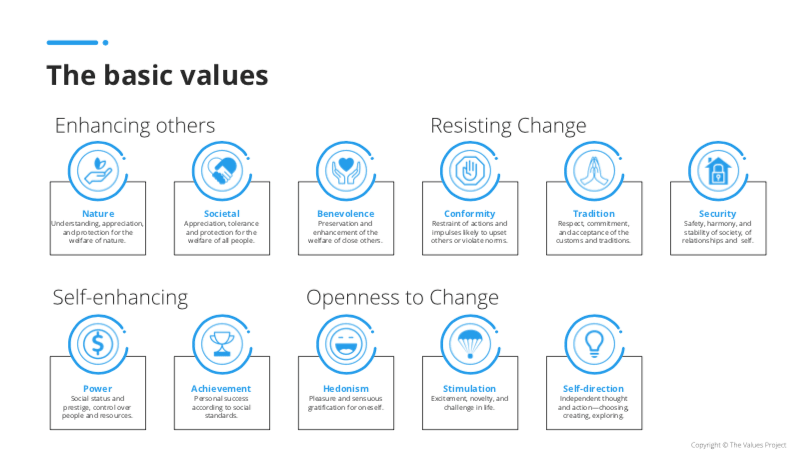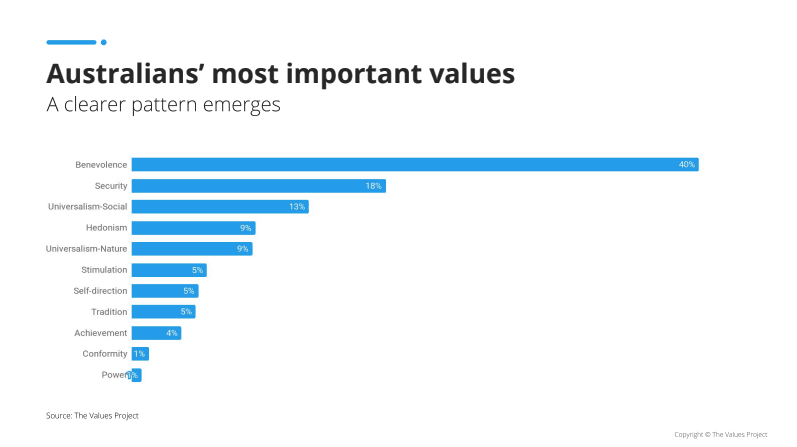How do personal values relate to sustainable consumer behaviour?
Pureprofile presents a snapshot of The Values Project findings at the annual WA AMSRS conference. You can download the presentation here.
How do personal values drive the consumer behaviour of Australians?
Yesterday, we presented the latest Values Project findings at the Australian Market and Social Research Society’s (AMSRS) WA conference in Perth. Now in its third year, The Values Project is an Australian Research Council funded research project and is the outcome of collaboration between Pureprofile and academics from the Centre for Human and Cultural Values at The University of Western Australia and other universities worldwide.
The project aims to better understand the complex relations between personal values and consumption behaviour across the adult lifespan. From the first of three annual, large-scale data collections, we are now examining how personal values relate to how Australians spend their time and money, their individual characteristics and traits, communication on social media, sustainable behaviour, commuting and transport use, and planning for retirement.
The research has started to address questions like: What are the personal values of Australians? And how do these values differ across age and life stage?
So, what are personal values?
Personal values are motivational goals that reflect what is important to people in their lives. They transcend situations and guide people’s perceptions, attitudes and behaviors. While all values are thought to be at least somewhat important, and are all positive (there are no ‘bad’ values), people differ in the relative importance they place on specific values.
The findings
In this study, we examined behaviours including the donation of unwanted possessions to charity, the purchase of second-hand products, using own reusable bag when shopping, buying products with no/less packaging, use of energy efficiency appliances, and the purchase of organic and fairtrade products.
Unsurprisingly, the Universalism-Nature value consistently positively influenced sustainable consumer behaviours. In contrast, Benevolence, and to a lesser extent Security, were negatively related to the sustainable behaviours of interest.The relationships between personal values and sustainable consumer behaviours were especially interesting when we examined how they differed across life stages.
Generally speaking, late adolescent’s (18-24 years) sustainable consumer behaviours were not related to their values. In early adulthood (25-34 years), sustainable consumer behaviours were positively related to Universalism-Nature values, but also to the opposing self-enhancement values Achievement and Power. In this life stage, Security, Benevolence and Stimulation values were consistently negatively related to sustainable consumer behaviours.
As individuals move into middle adulthood (35-60 years), Universalism-Societal joined Universalism-Nature as a motivator for sustainable action. The positive influence of Power and Achievement declined in this life stage, but was still present. Security values were no longer impeding sustainable behaviours, but Self-Direction and Benevolence values were negatively related to these behaviours.
Finally, in the oldest life stage, late adulthood (61 years and over), only Security values were negatively related to sustainable consumer behaviour. The sustainable consumer behaviours of older adults were strongly positively related to both Universalism values. These self-transcendence values clearly drove sustainable behaviour in older individuals.
Values-based marketing
The presentation concluded with a discussion of the implications for values-based marketing. Demographics and psychographics are only part of the equation. When we understand the inner motivations and values of our customers, we gain a deeper understanding of what inspires their purchase decisions.
The discussion centred on the incorporation of values data to segment decision-makers, gain insights into consumer decisions, target customers with relevant products, services and brands, and communicate using values-based language.
Researchers in this space have the opportunity to establish the big picture, the cultural context and behavioural analysis that brings together and makes sense of big data. The future of our industry rests on how well we work with and make sense of data and insights across social, business, technology and innovation contexts.
As an industry, it is important for us to promote the broad understanding of market and social trends, to highlight the work we do and how it fits into the complex social changes facing Australia, now and in the future.
About AMSRS
The AMSRS brings together practitioners, academics, clients and partner industries (such as advertising and marketing) to increase the standard, ethics and understanding of market and social research. Business and government clients seek the skills of AMSRS members to provide the depth of insight about human behaviour and thinking and the rigour they need for evidence-based decision making.
Pureprofile is a proud partner of the AMSRS, demonstrating our organisation’s commitment to quality research as well as keeping our business compliant, skilled and competitive.





